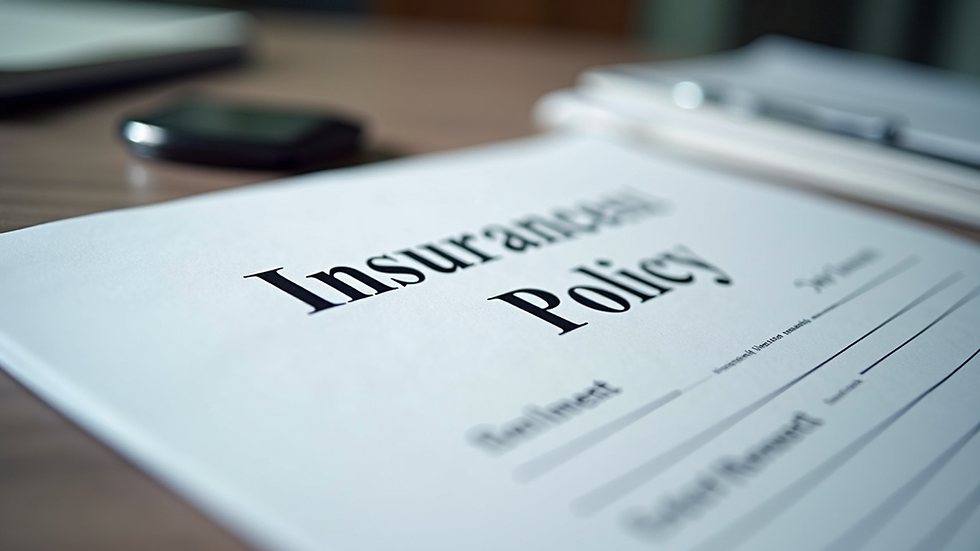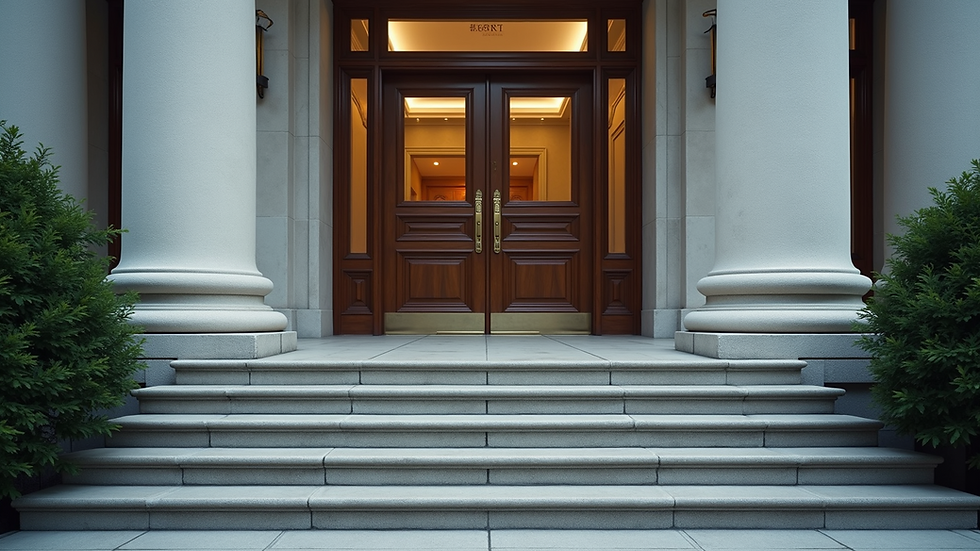Understanding Premises Liability Lawyers
- drostamkhani
- Sep 3
- 4 min read
Navigating the complexities of personal injury law can be daunting, especially when it involves injuries sustained on someone else's property. As a property injury lawyer, I have witnessed firsthand how critical it is to understand the nuances of premises liability. This area of law addresses the responsibilities property owners have to ensure safety and the legal recourse available when those duties are neglected. But what exactly does premises liability entail, and how can one effectively pursue a claim? This article aims to clarify these questions with precise explanations and practical advice.
The Role of a Property Injury Lawyer in Premises Liability Cases
When an individual suffers an injury due to unsafe conditions on another's property, the legal landscape can become complicated. A property injury lawyer specializes in representing clients who have been harmed in such circumstances. Their role is to establish liability, prove negligence, and secure compensation for damages.
Property owners have a legal obligation to maintain their premises in a reasonably safe condition. Failure to do so can result in accidents such as slips, falls, or other injuries. For example, a wet floor without warning signs or broken stairs can be grounds for a claim. The lawyer’s job is to gather evidence, including photographs, witness statements, and maintenance records, to build a compelling case.

In addition to proving negligence, a property injury lawyer must navigate the complexities of comparative fault, where the injured party’s own actions may partially contribute to the accident. Understanding these legal intricacies is essential to maximize the chances of a successful claim.
What does premises liability coverage mean?
Premises liability coverage is a type of insurance that property owners carry to protect themselves against claims arising from injuries on their property. This coverage typically includes medical expenses, legal fees, and compensation for pain and suffering if the owner is found liable.
Understanding this coverage is crucial for anyone pursuing a claim. It determines the financial resources available to compensate the injured party. For instance, a commercial property owner’s insurance policy might cover slip-and-fall accidents in a store, while a homeowner’s policy might cover injuries occurring on their residential property.

However, insurance companies often attempt to minimize payouts. This is where legal expertise becomes invaluable. A skilled lawyer can negotiate with insurers, ensuring that the compensation reflects the true extent of the injury and associated costs.
Common Types of Premises Liability Cases
Premises liability encompasses a broad range of incidents. Some of the most frequent cases include:
Slip and Fall Accidents - Often caused by wet floors, uneven surfaces, or debris.
Inadequate Security - Injuries resulting from assaults due to poor lighting or lack of security measures.
Dog Bites - When a property owner fails to control a dangerous animal.
Swimming Pool Accidents - Injuries due to lack of proper fencing or warnings.
Elevator and Escalator Malfunctions - Mechanical failures causing harm.
Each case type requires a tailored legal approach. For example, proving inadequate security might involve demonstrating that the property owner ignored previous criminal activity reports. Conversely, a slip and fall case might hinge on showing that the hazard was present long enough for the owner to address it.

Recognizing the specific nature of the injury and the property conditions is essential for building a strong claim.
How to Choose the Right Legal Representation
Selecting the appropriate legal counsel can significantly influence the outcome of a premises liability claim. Here are some practical recommendations:
Experience Matters: Look for lawyers with a proven track record in premises liability cases.
Local Knowledge: Attorneys familiar with California laws and courts can navigate regional nuances effectively.
Client Communication: Choose a lawyer who explains the process clearly and keeps you informed.
Aggressiveness in Negotiation: A lawyer who is willing to fight for maximum compensation is invaluable.
It is also wise to schedule consultations with multiple attorneys to assess their approach and compatibility. Remember, the goal is to find a legal partner who will advocate fiercely on your behalf.
Steps to Take After a Property Injury
Immediate and appropriate action following an injury on someone else’s property can strengthen your case. Consider the following steps:
Seek Medical Attention: Prioritize health and document all injuries.
Report the Incident: Notify the property owner or manager and request an incident report.
Gather Evidence: Take photographs of the scene, note hazardous conditions, and collect witness information.
Preserve Records: Keep all medical bills, repair estimates, and correspondence related to the injury.
Consult a Lawyer: Early legal advice can prevent mistakes that jeopardize your claim.
Taking these steps promptly can make a significant difference in the legal process and eventual compensation.
Why Legal Expertise is Crucial in Premises Liability Claims
Navigating the legal system without professional guidance can be overwhelming. A premises liability lawyer brings specialized knowledge to the table, ensuring that all legal requirements are met and deadlines observed.
Moreover, insurance companies often employ tactics to reduce payouts. Without legal representation, injured parties may accept settlements far below what they deserve. A lawyer can:
Evaluate the full extent of damages, including future medical costs.
Negotiate assertively with insurers.
Prepare for trial if necessary.
In essence, legal expertise transforms a complex and intimidating process into a manageable path toward justice.
Moving Forward with Confidence
Understanding the responsibilities of property owners and the protections available to injured individuals is the first step toward securing rightful compensation. Whether dealing with a minor injury or a severe accident, the right legal support can make all the difference.
By recognizing the importance of premises liability law and engaging experienced counsel, injured parties can approach their claims with confidence and clarity. The path to recovery and justice begins with informed action and steadfast advocacy.
This comprehensive overview aims to empower those affected by property-related injuries to take decisive steps. Remember, the law is designed to protect you, but only if you know how to assert your rights effectively.
.png)




Comments